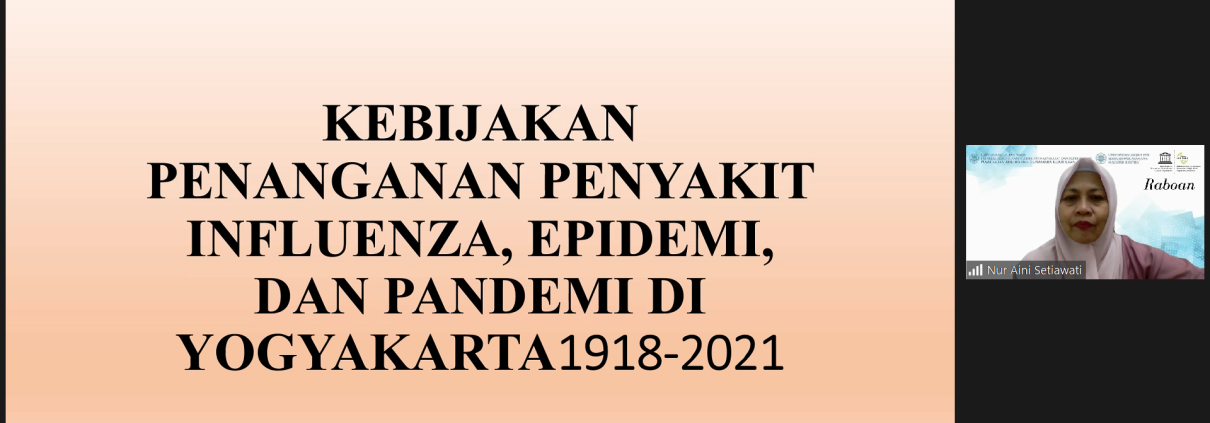Policies for Controling Influenza during the Colonial Period (Raboan Discussion Forum)
The weekly program Raboan Discussion Forum program was again held by the Center for Bioethics and Medical Humanities (CBMH FK-KMK UGM) on Wednesday (30/03). The virtual forum presented Nur Aini Setiawati, PhD, a historian from the History Department, Gadjah Mada University. He raised a topic with the title Policy for Handling Influenza, Epidemic and Pandemic Diseases in Yogyakarta. The event was guided by moderator dr. Galuh Dyah Fatmala from CBMH FK-KMK UGM and Unesco Chair on Bioethics UGM.
Nur Aini found that influenza epidemics have a long history in Indonesia. The outbreak became a recurring event and had the same policy patterns at the time it occurred. In his presentation, Nur Aini gave an example of the Influenza pandemic that emerged during the colonial period in 1918, then 1957, and the Covid-19 pandemic in 2020 until now.
According to Nur Aini, by looking at the historical view of the Influenza handling policy, it is hoped that the government will be able to make the right decisions for current problems.
“What kind of Influenza policy in Yogyakarta in 1918 is expected to provide solutions for the present.” Nur Aini said.
The influenza pandemic that occurred in 1918 prompted the colonial government to issue policies to prevent infectious diseases. Under the direction of Dienst der Pestbestijding (Pest Eradication Service), the colonial government issued several policies, including quarantine policies, mandatory reporting policies, and treatment policies by doctors and paramedics.
First, the government prohibits the public from visiting their relatives or neighbors who have influenza in the hospital. The policy taken by the Dutch East Indies government was known as the Quarantine Ordinance. Its implementation was published in the Staatblad van Nederlands no 277 of 1911 which explained the granting of authority to the government to carry out quarantine in areas affected by the outbreak. This policy also emerged during the current Covid 19 pandemic where people’s movements were restricted through the lockdown policy (PPKM and PSBB).
The second policy is the obligation to report to the paramedic if there are residents who contract influenza or die. This policy can also be found today when the government has formed a task force tasked with collecting data on patients who are positive for Covid 19.
The third policy is for doctors and paramedics to control each barracks and monitor developments in villages affected by influenza outbreaks.




Leave a Reply
Want to join the discussion?Feel free to contribute!